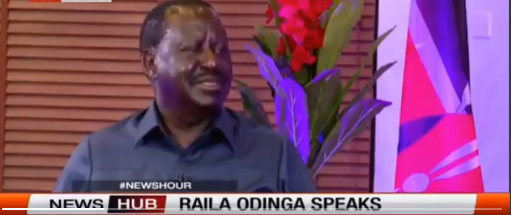Raila Odinga, the opposition leader in Kenya, made striking remarks following the impeachment of Deputy President Rigathi Gachagua. He emphasized that Gachagua missed a critical opportunity to rectify his mistakes, calling it a “missed call.”
Odinga’s words reflect his unwavering stance, as he pledged that his movement would not back down despite the political turbulence.
His comment suggests that Raila and his team remain determined to push their political agenda, signaling that the battle for reform in Kenyan governance is far from over.
Gachagua’s impeachment was a monumental event, with 291 MPs out of 345 voting to remove him from office.
The overwhelming support for the impeachment exposed the divisions within the ruling coalition, as even some of President William Ruto’s close allies either abstained or supported the motion.
Notably, Kiharu MP Ndindi Nyoro, a staunch supporter of Ruto, distanced himself from the impeachment, revealing fractures within the president’s inner circle.
The political climate leading up to Gachagua’s ousting had been tense, with growing dissatisfaction among the public and accusations of corruption and economic mismanagement directed at the government.
Some political insiders speculated that Gachagua’s outspoken nature and frequent clashes with the president had isolated him, making his impeachment an inevitable outcome.
Raila’s opposition coalition, alongside some MPs from Ruto’s camp, seized the opportunity to rally support for the motion, showcasing the fragile nature of political alliances in Kenya.
This impeachment could have far-reaching consequences for President Ruto’s administration. Gachagua, who had been a key figure in securing support from the Mount Kenya region, might leave a void in Ruto’s political base.
The impeachment has the potential to alienate a significant portion of Ruto’s supporters in the region, adding more challenges to his administration as it grapples with economic hardships and governance issues.
Odinga’s comments following the impeachment not only reflected his satisfaction with the outcome but also hinted at the larger political strategy of his movement.
His camp has consistently criticized the government for its handling of the economy and its failure to deliver on campaign promises.
By pushing for Gachagua’s removal, Odinga likely aims to weaken Ruto’s government and pave the way for further reforms.
The impeachment could be part of a broader strategy to regain public trust and push for accountability at the highest levels of government.
Gachagua’s fate now rests on the constitutional process, which requires President Ruto to nominate a new Deputy President within 14 days.
This nomination will be crucial in determining whether Ruto can maintain a united government or if the impeachment will lead to further instability.
The choice of a new Deputy President could either strengthen Ruto’s hold on power or deepen divisions within the government, particularly if the Mount Kenya region feels betrayed by Gachagua’s removal.
In the meantime, Raila Odinga and his allies appear ready to capitalize on the political moment, using Gachagua’s downfall to energize their supporters and continue their fight for change.
The coming weeks will reveal whether this impeachment was merely a political maneuver or the beginning of a larger shift in Kenya’s political landscape.


